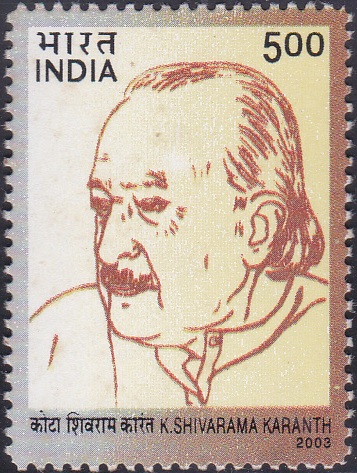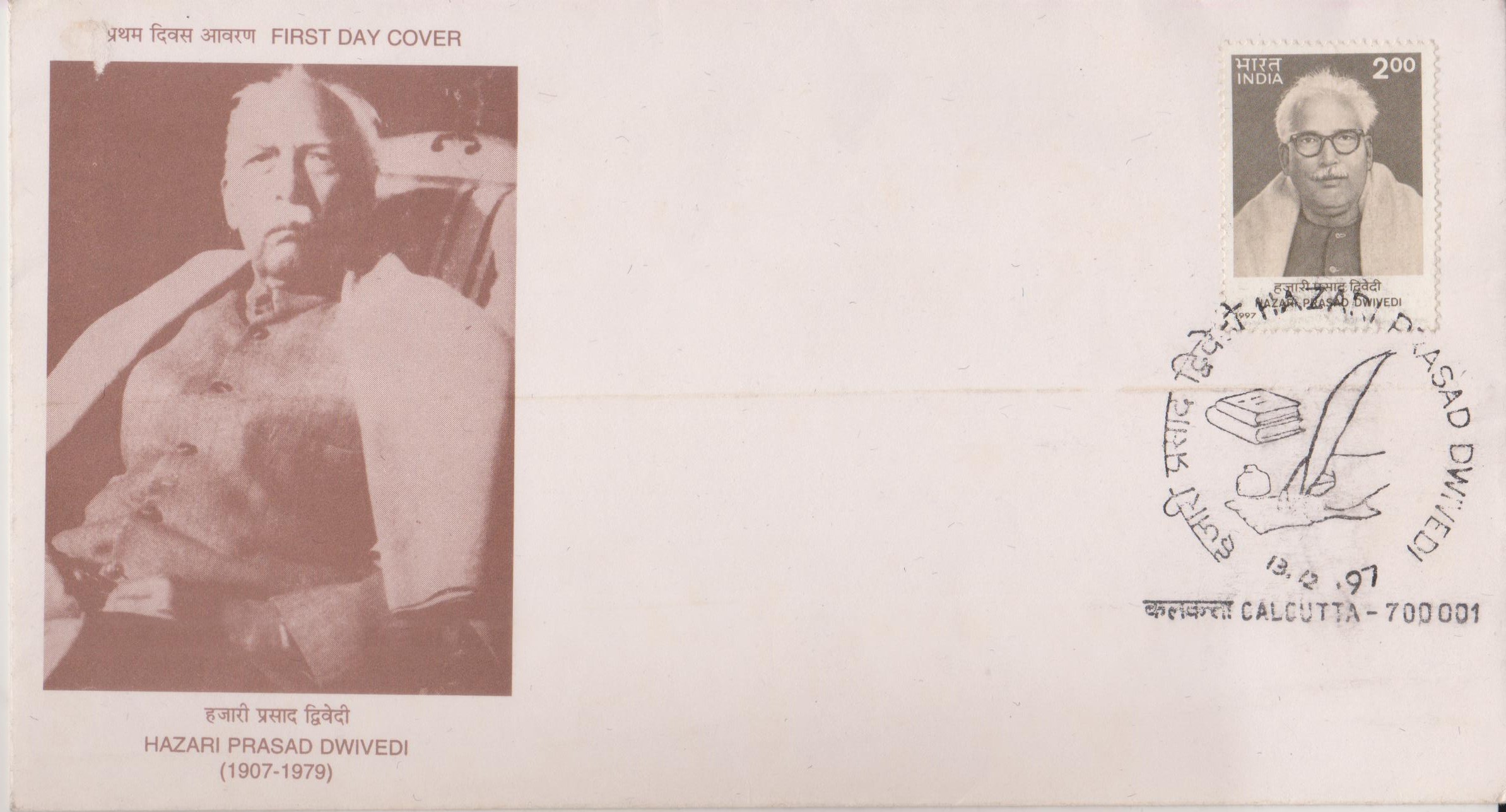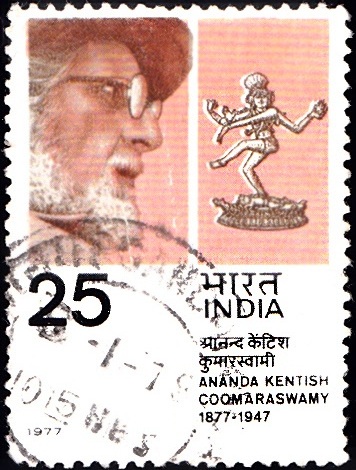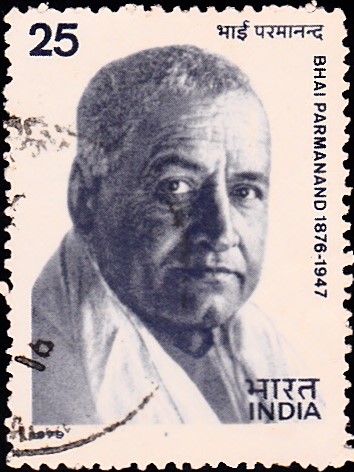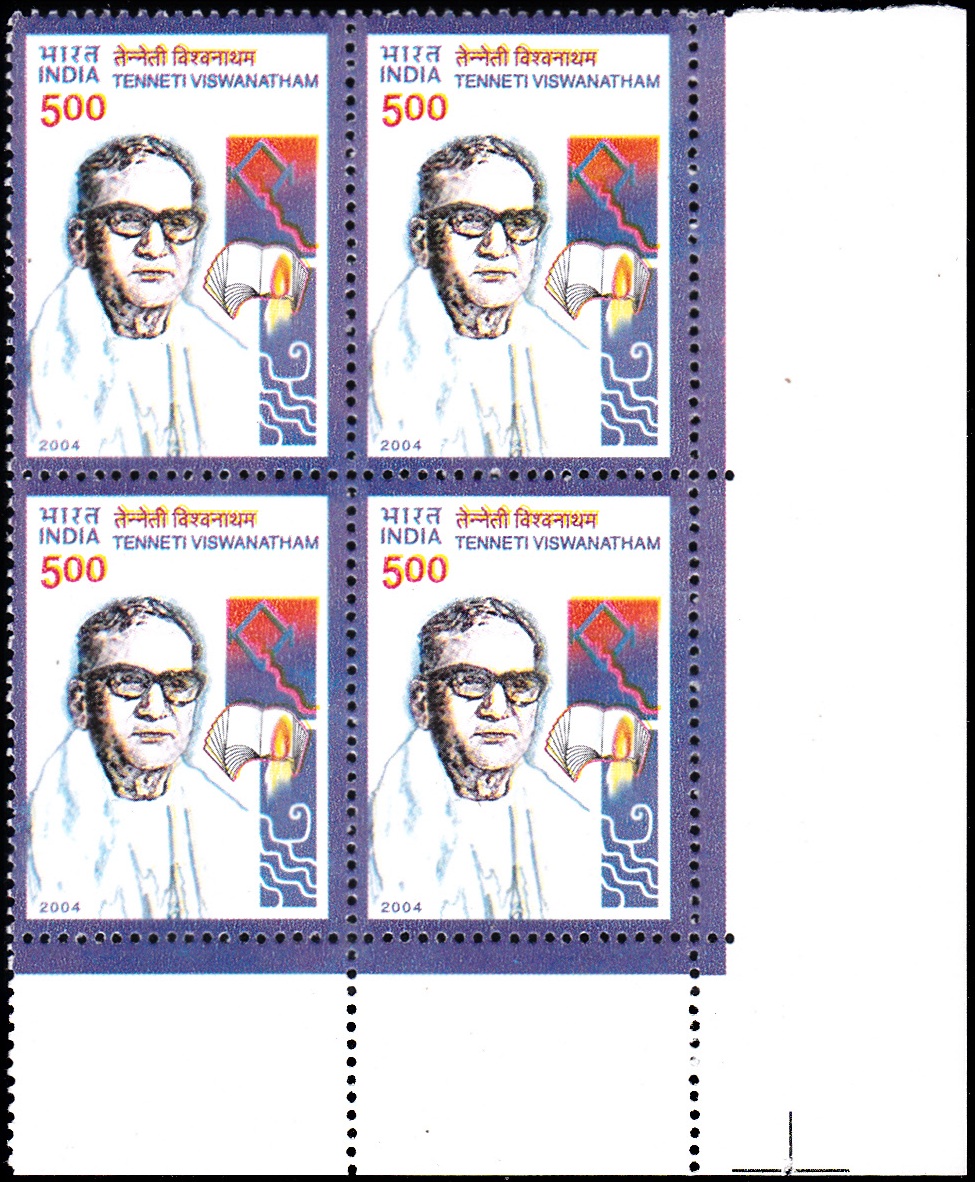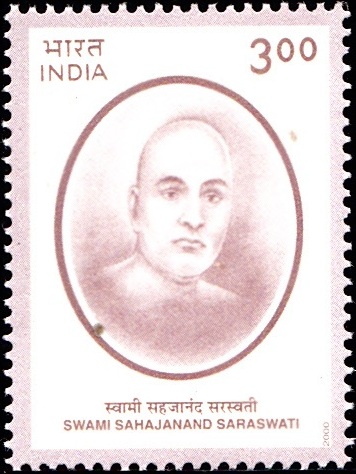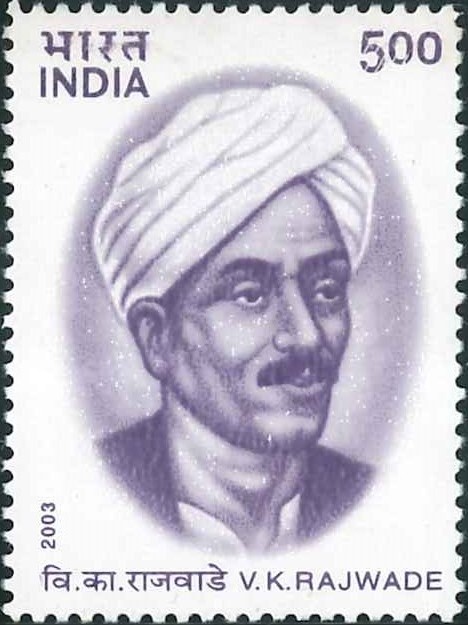
V.K. Rajwade
A commemorative postage stamp on the Birth Centenary of Itihasacharya Rajwade, an Indian historian (specially Marathi history) and founder-member of the Itihas Sanshodhak Mandal, Pune :

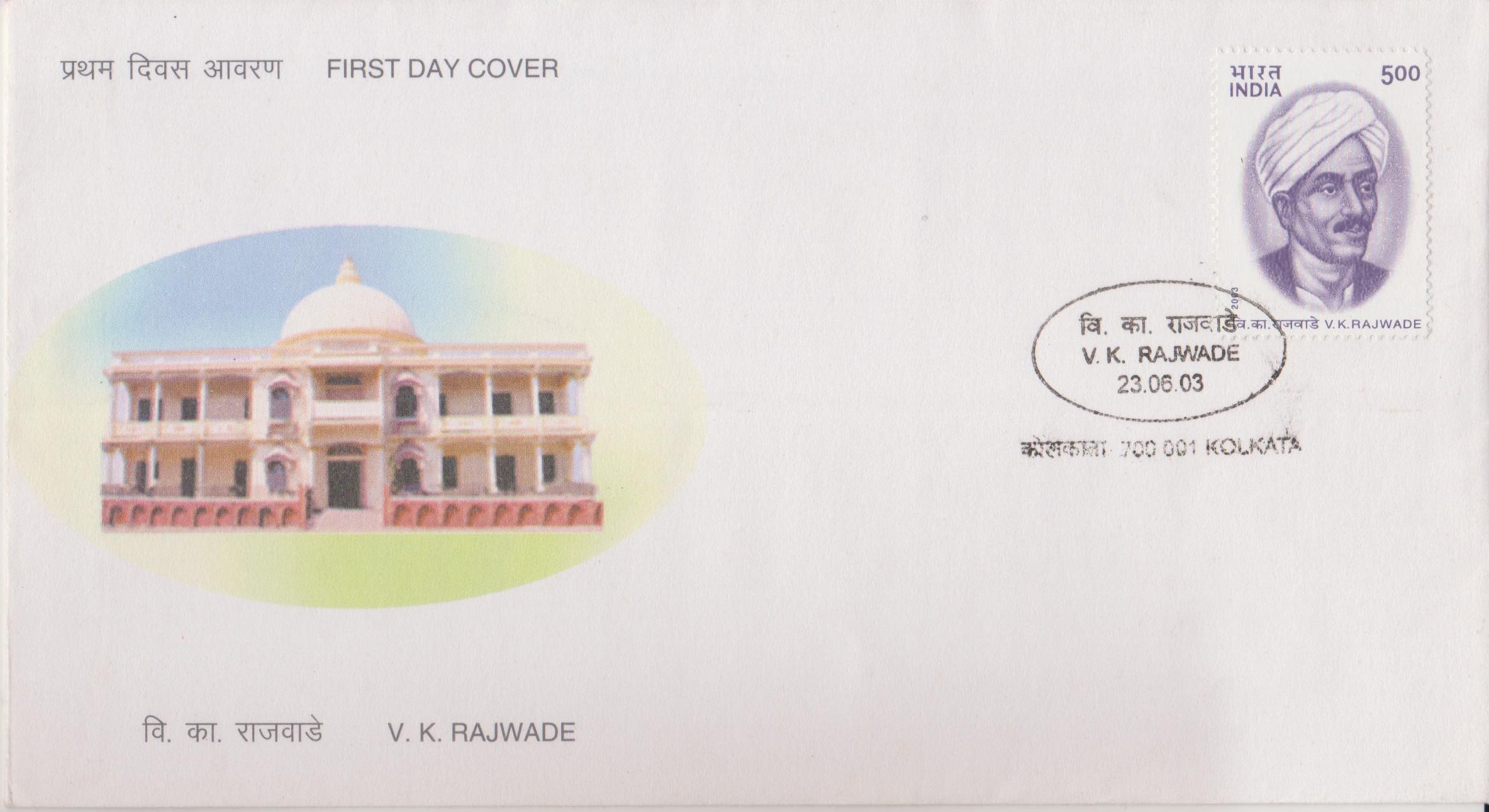 Issued by India
Issued by India
Issued on Jun 23, 2003
Issued for : The Department of Posts is happy to issue a commemorative postage stamp honouring Shri V. K. Rajwade.
Design : The first day cover carries a picture of Rajwade Historical Museum, Dhule, Maharashtra.
Credits :
Stamp : Based on material received from the proponents.
FDC and Cancellation : Nenu Gupta
Type : Stamp, Mint Condition
Colour : Single colour
Denomination : 500 Paise
Overall size : 2.90 x 3.91 cms.
Printing size : 2.55 x 3.56 cms.
Perforation : 13 x 13
Paper : Imported un w/m Adhesive Gravure Coated stamp paper in Sheets 50.8 x 53.5 Cms.
Stamps Printed : 0.5 million
Number per issue sheet : 35
Printing Process : Photogravure
Printer : India Security Press, Nashik
Name : Vishwanath Kashinath Rajwade
Born on Jun 24, 1863 at Varsai village, Raigad district, Maharashtra, India
Died on Dec 31, 1926
About :
- Vishwanath Kashinath Rajwade (1863-1926), one among the pioneering historians of India, was a multifaceted personality who left his imprint in many other disciplines like Linguistics, Literature, Geography, Oleography and Sociology also.
- V.K. Rajwade hailed from the Raigad district of Maharashtra. After completing his education in Pune, he took up the teaching profession and settled in Pune. The sad and untimely death of his wife in 1894 was a turning point in Rajwade‘s life. Overlooking the advice from different quarters to remarry, he decided to devote the rest of his life to the selfless pursuit of knowledge, through which he fructified his desire to serve the country. Meticulous in his research and prodigious in output, Rajwade wrote on a variety of subjects. However, he is remembered most for his path breaking work in historiography. His writings inspired many research scholars in Maharashtra and other parts of India to pursue the subject at a time when works of European historians dominated the academic discourses in Indian history. It is no exaggeration to say that his work revolutionized the way the subject of history was perceived in India and helped to advance an Indian view of history, which held that history included the totality of the activities of the society.
- By founding the Bharat Itihas Sanshodhak Mandal at Pune in 1910, he institutionalised his research procedures. He also changed the way history was being researched by giving as much importance to non-documental sources of history like costumes, articles of house hold use, buildings and works of art as was being given to written archival material like letters and manuscripts. He had highlighted the importance of folk literature and other oral evidences as useful historical sources much ahead of contemporary historians in most parts of the world. He had stressed five aspects in his research methodology, viz. collection of original historical records, preservation of records, examination and classification of records, editing and publications of records and interpretation of sources and writing of histories.
- Text : Based on material received from the proponents.


